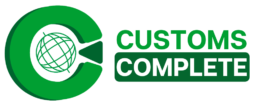CUSTOMS CLEARANCE CALAIS PORT
Calais Port plays a central role in UK-EU trade, particularly for RoRo (roll-on/roll-off) freight. Located just across the Channel from Dover, it sees thousands of trucks cross daily. With the end of free movement of goods between the EU and UK, Customs Clearance at Calais Port is now mandatory for most shipments. Understanding how the process works is essential to avoid bottlenecks and keep goods moving efficiently.
Click here for more information about the history of Calais Port
What Documents Are Required for Customs Clearance at Calais Port?
Before arrival, all goods must be backed by a complete and correct customs declaration. These typically include:
- Commercial invoice showing the buyer, seller, and goods details
- Packing list outlining quantities and weights
- Transport documents such as a CMR or Bill of Lading
- Any certificates or licences for controlled goods
French Customs expects all data to be accurate and submitted in advance. Mistakes can result in delays, penalties, or refused entry. You can find guidance on document formats and requirements on the Douane.gouv.fr site.
Duty and VAT Considerations
Goods entering France must be classified correctly using HS codes, which determine applicable customs duties and import VAT. Errors in these codes can lead to underpayment or overpayment of taxes, and could trigger audits or delays.
You can check duty rates and classification using the TARIC system. For UK exporters, it’s also important to confirm whether your goods meet rules of origin under the UK-EU trade deal to benefit from duty-free access.
Border Controls and Sanitary Checks
Customs at Calais may carry out document checks, scans, or physical inspections, especially for:
- Agri-food goods
- Pharmaceutical products
- Live animals or plants
- High-risk or restricted items
These inspections ensure goods meet EU safety and health standards. Failure to prepare can result in trucks being delayed or goods refused. Check updates on inspection rules via Douane.gouv.fr – Border Controls.
Border Entry Process
Calais operates a smart border system for UK-EU movements. Exporters must submit export declarations in the UK, while importers in France must provide import documents before arrival. Vehicles arriving without valid references or barcode scans will be held for clearance.
More on this system is available from the Port Boulogne Calais Customs info page.
How Customs Complete Can Help with Customs Clearance at Calais Port
We support full Customs Clearance at Calais Port, helping businesses manage the complex procedures on both sides of the Channel. Our team provides:
- Submission of compliant import and export declarations
- Help with tariff classification and origin rules
- Liaison with French and UK customs authorities
- Support with inspections and documentation
- VAT and duty payment coordination
Our goal is to simplify your operations while keeping everything compliant and efficient.
Customs Clearance at Calais Port requires up-to-date documentation, accurate HS codes, and knowledge of both UK and French customs systems. With the right preparation, businesses can keep cargo moving and minimise costly delays.
How Do I Contact a Customs Agent to arrange Customs Clearance at Calais Poty?
When you are ready to customs clear your goods, you can contact one of our agents using the form below and we will assist you.
CONTACT CUSTOMS COMPLETE
Fill out the form below and we will get back in touch with you ASAP
